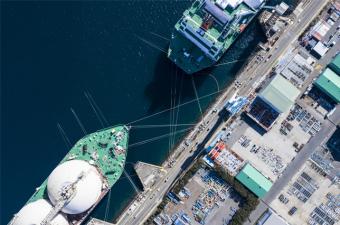
OVERVIEW
Teare J handed down judgment on 27 April 2020 in two related actions: Trafigura Maritime Logistics v Clearlake Shipping and Clearlake Chartering USA v Petroleo Brasileiro. The Judge handed down a further, consequential judgment on 6 May 2020. The judgments provide some important guidance about the requirements imposed by the International Group of P&I Clubs’ standard letter of indemnity (“LOI”) wording and the position of intermediate parties in an LOI chain. Robert Thomas QC and Ben Gardner appeared for the Clearlake parties in the middle of a chain of LOIs, instructed by Andrew Purssell and Karnan Thirupathy of Kennedys.
Background
Trafigura was the time charterer of the vessel MIRACLE HOPE. Trafigura sub-chartered the vessel to Clearlake, and Clearlake sub-chartered to Petrobras on back-to-back terms, for a voyage carrying 1 million barrels of crude oil from Brazil to China. The charterparties permitted the charterers to order discharge without production of bills of lading against owners’ standard LOI wording. Clearlake was therefore in a back-to-back position between Trafigura and Petrobras.
Petrobras requested discharge to receivers without production of the bills, which Clearlake passed on to Trafigura and Trafigura passed on to head owners, who complied with the request. The receivers’ financing bank, Natixis, then arrested the MIRACLE HOPE in Singapore and claimed damages of US$76 million for misdelivery against the head owners.
Trafigura made a demand that Clearlake put up security to release the vessel, which Clearlake passed down to Petrobras. No security was put up and so Trafigura obtained an urgent mandatory injunction against Clearlake requiring the provision of security forthwith [2020] EWHC 726 (Comm). Clearlake obtained the same urgent mandatory relief against Petrobras [2020] EWHC 805 (Comm).
The Judgments
Teare J gave judgment at the return date in both actions [2020] EWHC 995 (Comm), 4 weeks after the Trafigura injunction and 3 weeks after the Clearlake injunction. Clearlake and Petrobras explained the delay in posting security on the basis that (amongst other things) Natixis, the arresting party, was making unreasonable demands as to the terms of the bank guarantee to be provided as security in Singapore. Trafigura argued that Clearlake must have breached the injunction to provide security “forthwith” because it had been ordered to do so 4 weeks earlier and had not done so. Trafigura therefore sought an order that Clearlake put up security in whatever form was agreeable to Natixis within 2 business days, alternatively paid cash to Natixis (subsequently modified to a payment into court). Clearlake resisted that variation, but made an equivalent application against Petrobras to maintain its back-to-back position.
The first issue that the Court considered was the meaning of the requirement to put up security “forthwith” in the injunctions, which was treated as equivalent to the requirement in the standard LOI wording to put up security “on demand”. The Court rejected Trafigura’s submission that “forthwith” meant immediately (as a dictionary might suggest) and without regard to the practicalities of doing so. Instead, the Judge held that the wording required the indemnifying parties to put up security “in the shortest practicable time”, which “will inevitably depend upon the circumstances of the case” [16].
The other construction issue was what security Clearlake and Petrobras was required to provide forthwith. The standard LOI wording provided for “security as may be required” to be put up to secure the release of the vessel. The Judge considered that there were three potential meanings: (1) the security required by the arresting party, (2) the security required by the court of the place of arrest, or (3) the security required by the court with jurisdiction over the LOI. The Judge held that, consistent with Article 5 of the Arrest Convention, the standard LOI wording required the indemnifying party to put up such security as was required by the arresting forum to secure the vessel’s release [28]. Trafigura’s argument that Clearlake (and Petrobras) were required to put up whatever security Natixis demanded was rejected.
The Judge noted that in ordinary circumstances it was the arresting court that would determine whether the security offered was acceptable. However, the Court was unwilling to wait for the Singapore Court to resolve the issue in late May [29] – [30].
The Court was therefore required to decide whether Clearlake and Petrobras should be ordered to put up security by agreeing to Natixis’ demands as to the terms of a bank guarantee. The Court was not satisfied that Natixis’ security demands were reasonable or that it was possible to provide a guarantee in the terms required, particularly in so far as it required the bank guarantee to respond to the judgment of a foreign court and was “evergreen” in nature. The Judge was understandably reluctant to express views on the matters of Singaporean law and practice raised [58]. He also rejected Trafigura’s suggestion that security be put up under protest because, whatever the position in Singapore, it was unrealistic to expect a bank to put up security under protest in a form to which it objected [64]. The proper way to determine whether the security offered by Clearlake or Petrobras was acceptable was to make an application to the Singapore Court, as Clearlake had done [65].
Nevertheless, the English Court was unwilling to leave the parties at the impasse created by the guarantee negotiations between Natixis and Clearlake / Petrobras and the Singapore Court’s inability, in the extraordinary current circumstances, to decide the amount of the guarantee more swiftly. Therefore, the Judge ordered Clearlake and Petrobras to make a payment into the Singapore Court with a view to securing the release of the vessel [67] – [75].
In a further judgment on consequential matters, the Court addressed the form of order and costs issues. As to the form of order, the Court with “some hesitation” rejected Clearlake’s argument that the payment obligations should be staggered, with Clearlake allowed further time if Petrobras failed to comply [22]. The Court recognised the potential wasted costs if Clearlake were ordered to put up security within the same deadline as Petrobras, but considered that Trafigura’s contractual rights outweighed that consideration [20] – [22].
As to costs, the indemnity basis was inappropriate because Clearlake had exhibited “responsible behaviour” in acting as it had [33] and “the existence of [the indemnity under the LOI] does not assist in enabling Trafigura to show that Clearlake’s conduct of the proceedings is out of the norm” [38]. Petrobras was ordered to pay to Clearlake both parties’ costs of the Trafigura proceedings until the date of Clearlake’s application to vary the order because these were caused by Petrobras’ refusal to put up security.
Observations
The judgments provide helpful clarification of five points on which there was limited authority:
First, the International Group LOI wording only requires the indemnifying party to put up such security as the court of the arresting jurisdiction requires to secure the vessel’s release. There is no obligation to accede to unreasonable demands and, absent special circumstances such as the delay in securing a hearing in Singapore, the English Court (as the court with jurisdiction over the LOI) will be unwilling to decide what security is sufficient to secure release.
This is a sensible and pragmatic approach: the Arrest Convention regime requires the arresting court to set bail or other security and it would be surprising if the International Group intended its wording to require P&I Clubs to put up security unreasonable as to form or amount. Comity considerations weigh against the English Court’s involvement without strong reasons (e.g. the foreign court being unable to act promptly, as here, or the situation in The Kallang where the arrest was a collateral attack on an arbitration agreement).
Second, ‘forthwith’ and ‘on demand’ do not require a party to put up security immediately or within a particular time frame. The indemnifying party must do everything practicable to put up the security that the arresting court requires without delay. That may include asking the arresting court to determine what is sufficient security and/or making payment into court if guarantee wording cannot be agreed or determined swiftly. It is not possible to determine if an obligation to provide security forthwith has been complied with only by the time that has elapsed.
Third, the Court was not attracted to staggering obligations down the LOI chain. The Court prioritised the disponent owner’s right to security from its immediate counterparty over the risk in an LOI chain that wasted costs could be generated by imposing identical deadlines down an LOI chain. In the present case, there are only two indemnifying parties, but the chain could be substantially longer or the wasted costs even higher (they were put at over US$1m in this case). There may come a point in a future case where the possibility of multiple parties incurring significant costs to guard against each other’s non-performance would outweigh the claimant’s interest.
Fourth, the existence of a contractual indemnity is not a basis for awarding costs on an indemnity basis. The Court will require some conduct out of the norm, not mere contract-breaking, to justify a costs award on this basis. The claimant will retain its indemnity claim to recover any reasonable costs incurred as a result of the delivery without production of bills of lading.
Fifth, a charterer at the end of an LOI chain can be required to pay costs incurred in related proceedings caused by their refusal to put up security. This type of order in a back-to-back charterparty situation was recognised in the pre-CPR case The Vimeira (No.2), but this case is a useful confirmation of its availability post-CPR.
This case is a reminder of the difficult position that a back-to-back charterer may find themselves in an LOI case. In principle, they should be able to pass demands up and down the charterparty chain and recover their costs of doing so from the indemnifying party, but the Court will nevertheless hold them to their independent contractual promise and so the indemnity down the LOI chain is only as good as the charterer who gives it.


